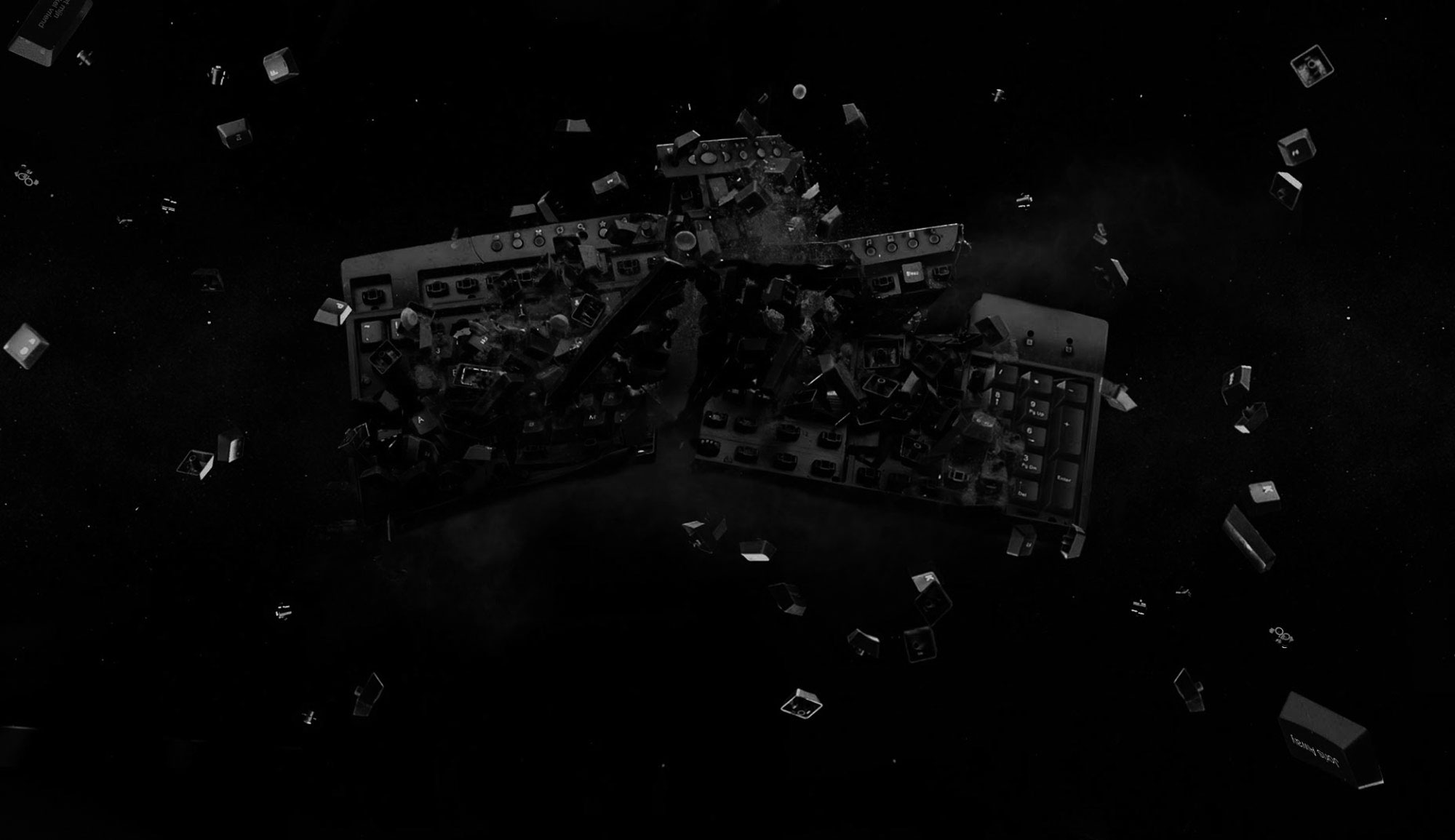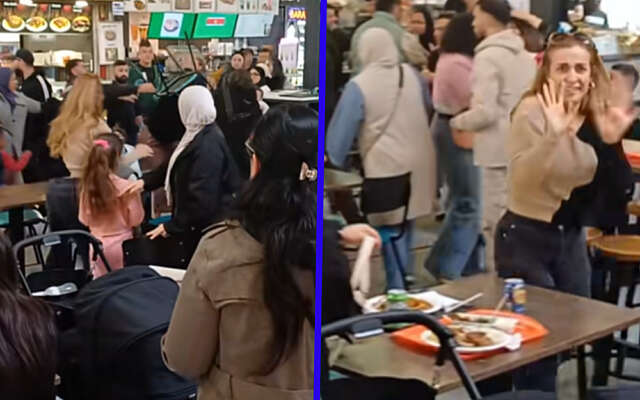#Rediff L'appel des 100 intellectuels contre le «séparatisme islamiste» lefigaro.fr/vox/societe/20…
Vertaling. 100 Franse intellectuelen tekenen brisant pamflet tegen "Islamistisch Totalitarisme"
Frankland Gidsland! Nederland heeft überhaupt niet eens 100 intellectuelen, en degene die zo'n vlammend pamflet hier zouden ondertekenen komen alle zeven van de rechtsfaculteit te Leiden. Natuurlijk weer achter een paywall want kut-Frambozen, maar via een clandestiene versie op Voltairenet.org toch ergens naar het Engels vertaald, en daarom hier even de belangrijkste alinea's voor u in het Nederlands. Hele Engelse versie, de 100 ondertekenaars incluis, na de breek.
*"Wij zijn burgers met uiteenlopende opvattingen en staan vaak tegenover elkaar, maar we zijn overeengekomen om, ongeacht de actualiteiten, onze zorg over de opkomst van het islamisme uit te spreken. Het zijn niet onze overeenkomsten die ons binden, maar het gevoel van de bedreiging voor vrijheid in het algemeen, niet alleen de vrijheid van gedachte. Wat ons vandaag bindt is van een meer fundamentele natuur dan hetgeen ons morgen ongetwijfeld weer onderscheidt. *
Het nieuwe islamistische totalitarisme wil op elke manier grond winnen, en wil zichzelf als slachtoffer van intolerantie afschilderen.
(...) Het nieuwe separatisme beweegt zich under cover voort. Het wil goedaardig lijken, maar in werkelijkheid is dit het wapen waarmee politiek en cultureel islamisme mee poogt te veroveren. Islamisme wil separatie, omdat het anderen afwijst, inclusief moslims die hun ideeën niet delen. Islamisme veracht democratische soevereiniteit, omdat het diens legitimiteit compleet ontkent. Islamisme voelt zich vernederd omdat het niet dominant is.
Dit is onacceptabel. We willen in een onverdeelde wereld leven, waar de twee seksen met elkaar om kunnen gaan zonder dat elkaars aanwezigheid hen beledigt. We willen in een onverdeelde wereld leven, waar vrouwen niet om hun natuur minderwaardig geacht worden. We willen in een onverdeelde wereld leven, waar mensen zich zonder angst onder elkaar kunnen begeven. We willen in een onverdeelde wereld leven waar geen religie de wet voorschrijft."
“We are citizens with different opinions, and very often find ourselves opposing one another, who have agreed to express, regardless of what is currently in the news, their concern in the face of the rise of Islamism. It is not our similarities that bind us, but the feeling of the danger to freedom in general and not just the freedom of thought. What binds us today is of a more fundamental nature than that which will undoubtedly separate us tomorrow.
The new Islamist totalitarianism seeks to win ground by any means, and [seeks to] pass for a victim of intolerance. One could observe this strategy when the Teacher’s Union SUD Éducation 93 offered, a few weeks ago, a training course, including workshops on ‘racism by the state’ which were forbidden for ‘whites’. Certain hosts were members or sympathisers of the Collective against Islamophobia in France and of the Party of the indigenous people of the Republic. These kinds of organisations have been multiplying lately. From them, we have learned that the best way to combat racism is to separate the ‘races’. If that idea clashes with ours, it is because we are Republicans.
We also hear it said that, because religions are violated in France by an ‘instrumentalised’ Laïcité, we must give to that which is in the minority, which is to say, to Islam, a special place so it ceases to be humiliated. The same line of thinking continues: by covering themselves with a veil, women protect themselves from men and by setting themselves apart in this way, they are able to set themselves free.
What these proclamations have in common, is the thought that the only way of defending the ‘dominated’ (not our choice of words, but that of the SUD Éducation 93), is to separate them from others and grant them privileges.
It wasn’t long ago, that Apartheid reigned in South Africa. Based on a segregation of the blacks, it sought to exonerate itself by creating Bantustans, which were given a fictional autonomy. A system that fortunately has disappeared.
But here today, there is a new kind of Apartheid proposed for France, a segregation turned on its head, by which the ‘dominated’ preserve their dignity by sheltering themselves from the ‘dominant’.
However, would that mean that a woman who removes the veil and goes out into the street reverts to being a normal prey? Would that mean that a ‘group’ that rubs shoulders with others is humiliated by that? Would that mean saying that a religion that accepts being one amongst others loses face?
And the French Muslims, or those with an Islamic cultural background who are not believers, that love democracy and want to live with everybody, is Islamism planning to set them apart, them as well? And the women who refuse to be locked up, who will decide for them? And the others, who seemingly do not seem to deserve protection: are they to be thrown in together in the camps of the ‘dominant’?
All this goes against everything that has been done in France to guarantee the civil peace. Since long, the unity of this country is founded on indifference towards the particularities that may conflict. What is called ‘republican universalism‘ consists not of a denial of the sexes, of race or of religion, but in defining a civil space independent of them, so that nobody is excluded. And how can one not see that Laïcité also protects minority religions? By putting it in danger, we risk a return to the Wars of Religion.
Who is served by this segregation in the new style? Is it simply to permit the ‘dominated’ to safeguard their purity by living amongst themselves? Is it not primarily to affirm the secession from the national community, its laws and its mores? Is it not a most characteristic expression of the hatred towards our country and democracy?
That each lives by the law of his community, or of his cast, and filled with contempt for those of others, that none is judged, but by his peers, this is contrary to the spirit of the Republic. This was founded on a refusal of private rights that apply to specific and exclusive categories, on the abolition of privileges. On the contrary, the same laws for every one of us, that is what the Republic guarantees us. It is what is simply called justice.
The new separatism advances undercover. It wants to appear benign, but in reality, it is the weapon with which political and cultural Islamism seeks to conquer. Islamism seeks to be separate, because it rejects others, which includes Muslims that do not share its ideas. Islamism detests the sovereignty of democracy, because it denies its legitimacy completely. Islamism feels humiliated just because it is not dominant.
There is no question of accepting this. We want to live in an undivided world, where the two sexes can regard each other without being insulted by the presence of the other. We want to live in an undivided world, where women are not deemed inferior because of their nature. We want to live in an undivided world, where people can mingle without fear. We want to live in an undivided world where no religion prescribes the law.”
The petitioners:
Waleed al-Husseini, writer
Arnaud d’Aunay, painter
Pierre Avril, academic
Vida Azimi, jurist
Isabelle Barbéris, academic
Kenza Belliard, trainer
Georges Bensoussan, historian
Corinne Berron, author
Alain Besançon, historian
Fatiha Boudjahlat, essayist
Michel Bouleau, jurist
Rémi Brague, philosopher
Philippe Braunstein, historian
Stéphane Breton, filmmaker, ethnologist
Claire Brière-Blanchet, reporter, essayist
Marie-Laure Brossier, elected municipal
Pascal Bruckner, writer
Eylem Can, scriptwriter
Sylvie Catellin, semiologist
Gérard Chaliand, writer
Patrice Champion, former ministerial advisor
Brice Couturier, journalist
Eric Delbecque, essayist
Chantal Delsol, philosopher
Vincent Descombes, philosopher
David Duquesne, Liberal nurse
Luc Ferry, philosopher, former minister
Alain Finkielkraut, philosopher, writer
Patrice Franceschi, writer
Renée Fregosi, philosopher
Christian Frère, professor
Claudine Gamba-Gontard, professor
Jacques Gilbert, historian of ideas
Gilles-William Goldnadel, lawyer
Monique Gosselin-Noat, Academic
Gabriel Gras, biologist
Gaël Gratet, professor
Patrice Gueniffey, historian
Alain Guéry, historian
Eric Guichard, philosopher
Claude Habib, writer, professor
Nathalie Heinich, sociologist
Clarisse Herrenschmidt, linguist
Philippe d’Iribarne, sociologist
Roland Jaccard, essayist
Jacques Jedwab, psychoanalyst
Catherine Kintzler, philosopher
Bernard Kouchner, doctor, humanitarian, former minister
Bernard de La Villardière, journalist
Françoise Laborde, journalist
Alexandra Laignel-Lavastine, essayist
Dominique Lanza, Clinical Psychologist
Philippe de Lara, philosopher
Josepha Laroche, academic
Alain Laurent, essayist, publisher
Michel Le Bris, writer
Jean-Pierre Le Goff, philosopher
Damien Le Guay, philosopher
Anne-Marie Le Pourhiet, jurist
Barbara Lefebvre, teacher
Patrick Leroux-Hugon, physicist
Élisabeth Lévy, journalist
Laurent Loty, historian of ideas
Mohamed Louizi, engineer, essayist
Jérôme Maucourant, economist
Jean-Michel Meurice, painter, director
Juliette Minces, sociologist
Marc Nacht, psychoanalyst, writer
Morgan Navarro, draftsman
Pierre Nora, historian, publisher
Robert Pépin, translator
Céline Pina, essayist
Yann Queffélec, writer
Jean Queyrat, director
Philippe Raynaud, Professor of Political Science
Robert Redeker, writer
Pierre Rigoulot, historian
Ivan Rioufol, journalist
Philippe San Marco, author, essayist
Boualem Sansal, writer
Jean-Marie Schaeffer, philosopher
Martine Segalen, ethnologist
André Senik, teacher
Patrick Sommier, a theater man
Antoine Spire, Vice President of Licra
Wiktor Stoczkowski, anthropologist
Véronique Tacquin, professor, writer
Pierre-André Taguieff, political scientist
Maxime Tandonnet, author
Sylvain Tesson, writer
Paul Thibaud, essayist
Bruno Tinel, economist
Michèle Tribalat, demographer
Caroline Valentin, essayist
David Vallat, author
Eric Vanzieleghem, documentalist
Jeannine Verdès-Leroux, historian
Emmanuel de Waresquiel, historian
Ibn Warraq, writer
Yves-Charles Zarka, philosopher
Fawzia Zouari, writer"
Dit wil je ook lezen
Hans Teeuwen moet wat kwijt over ISLAM
Hij heeft zijn messen weer geslepen
IS-kanaal dat opriep tot aanslag bij Festival der Liebe pompt nieuwe oproep rond
Als lone wolves in groepsverband opereren, zijn het dan nog lone wolves?
Ramadanbukkake Algemeen Dagblad in volle gang
Voorbereiding treffen voor de redactie-iftar
Lekker veel ruimte op Festival der Liebe!
Allemaal dankzij de islam
Hip hip hooray, it’s Ramadan Time! Heel Holland vast!
Soep van de Week in Het StamCafé
Koranverbrander Londen aangevallen door tot op het bot gekwetste messenzwaaier
Kijk eens wie er niet zwijgt!




